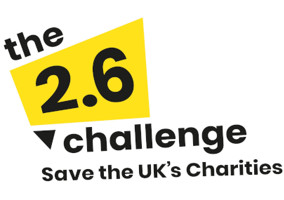Creative and inspiring fundraising efforts are helping to relieve some of the boredom and worry of lockdown by giving people something positive to focus on and generating much needed income for struggling charities.
Charities of all shapes and sizes have been launching emergency funding appeals to generate much needed cash. And the public has responded by baking, singing, dancing, crafting and everything in between to support causes they are passionate about.
However, the financial challenge facing the sector is huge. To what extent can these efforts be expected to fill the void?
It's well documented that with charity shops closed and many fundraising activities off the table, charities stand to lose billions of pounds.
An Institute of Fundraising survey warned that charities are predicting a 48% fall in their voluntary income.
What’s been happening?
There are still ways to raise money. Social media, online channels and text donation services have proved vital in recent weeks.
Some events that would have taken place physically are taking place virtually, such as people running on a treadmill or around a park instead of in a race with other people. One of the first to do this was baby charity Tommy’s, which adapted its Landmarks Half Marathon to allow participants to run solo around what they consider to be their local landmarks.
Elsewhere, new fundraising initiatives have emerged. For example, Plan International UK’s Home Hairstyle Challenge is encouraging parents and carers to let their children cut or re-style their hair. The charity suggests that friends sponsor or donate the amount they would normally spend on a haircut, colour or style, and that the results are shared online.
Last week was particularly busy week on the fundraising front. Notably, a joint appeal by the Comic Relief and Children in Need has so far raised £33m.
If you were to compare this total to other telethons hosted by the charities, you would be disappointed. Red Nose Day has been known to reach £100m on the night, while Children in Need tends to raise around £50m during its annual telethon.
However, comparisons are not necessarily fair. This appeal was organised at short notice, and came just weeks after Sport Relief, which raised £42m. It was also a much shorter programme than usual, and with social distancing in place, many of the normal fundraising activity taking place in schools, workplaces and the community was out of the question.
Last weekend’s 2.6 Challenge has raised £6m for charities so far. People were urged to help “save the UK’s charities” by doing anything around the theme of 2.6 or 26 on the 26 April, when the London Marathon would have taken place.
If the London Marathon had taken place as planned, it would probably have raised over £60m. So it’s painfully clear from the numbers that one weekend of fundraising largely via social media cannot hope to replace the income that would have been generated. But the 2.6 initiative is ongoing and is relatively easy for charities with stretched resources to get involved with.
The National Emergencies Trust appeal has reached the £40m milestone in its first appeal since its creation. It has benefited from a number of large donations from foundations and wealthy individuals, and secured the Duke of Cambridge as a patron.
Captain Tom Moore
One campaign that stands out is the phenomenon that is Captain Tom Moore. The 99-year old army veteran has single-handedly raised nearly £30m for NHS Charities Together, having inspired the nation.
He has broken fundraising records, reached Number One in the Official UK Charts and earned two Guinness World Records; one for the most money raised by a charity walk and the other for being the oldest person to reach number one.
The coverage of these efforts, which often omitted the word “charities”, led some to question why the NHS should be subsidised by donations – a sentiment many have sympathy with. But NHS charities are a longstanding partner with the NHS. They are currently playing an important role in supporting frontline workers with meals and travel, and will undoubtedly be called upon in the future to help staff and volunteers recover.
NHS Charities Together is aiming to raise £100m through its appeal, and with a range of high-profile support, it looks on course to do so. Premiership footballers have said that they will be supporting the campaign and the virtual Grand National raised £2.6m towards it. The appeal will receive the proceeds of a re-release of We’ll Meet Again by Dame Vera Lyn and Katherine Jenkins, and it has also received financial support from a number of companies, including Aviva and XTX Markets.
Economic paralysis
It is not just practical limitations that make fundraising difficult at the moment. Potential donors are feeling the pinch. Experience tells us that during recessions people donate less.
Earlier this month a Charities Aid Foundation poll found that while 22% people were planning to donate more to charity during the crisis, this was offset by 14% who planned to give less.
Elsewhere, Rapidata reported a spike in cancellations of charity direct debits in March, coupled with a drop in new sign-ups.
This is not that surprising. Generally the amount donated by the public tracks the health of the economy.
Many people are fearful of another global recession and the impact it will have on their own jobs.
A recent Ipsos Mori survey found 17% of people had seen their income decline as a result of coronavirus. It also found that most (63%) are spending less, while nearly one-third are saving more.
Some 16% had already dipped into their savings and 18% were considering doing so. People on lower incomes were more likely to say that they were looking at ways to borrow money during the crisis.
For this reason, it is understandable that charities are encouraged to take a cautious, and sensitive, approach in their communication material.
Not evenly spread
What has become clear is that fundraising success is not evenly spread throughout the sector. And many challenges still lie ahead.
Fundraisers have an important role in helping build a sense of community during lockdown, but their jobs will get harder as the crisis deepens and the extent of the impact on the economy and jobs becomes clear.
The sector should celebrate the successes we have seen to date, but it shouldn't expect there to be many more Captain Toms out there, and will need to prepare for harder times to come.
Related articles












